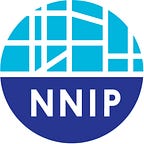About
Local Data for Equitable Communities is a resource hub curated by the Urban Institute and the National Neighborhood Indicators Partnership (NNIP) that highlights how local communities can use data and information to respond equitably and effectively to long-standing racial disparities and structural inequities. Through blog posts and other resources, we share promising approaches from grant programs housed at Urban and broader work being done by NNIP partners that others can adapt for their communities. We believe all sectors — from nonprofit organizations to local government to philanthropy — have roles to play in using data to create communities where people can thrive.
Urban Institute
The Urban Institute is a nonprofit research organization that provides data and evidence to help advance upward mobility and equity. We are a trusted source for changemakers who seek to strengthen decisionmaking, create inclusive economic growth, and improve the well-being of families and communities. For more than 50 years, Urban has delivered facts that inspire solutions — and this remains our charge today.
National Neighborhood Indicators Partnership
Much of our knowledge about how communities use data comes from Urban’s more than two decades of coordinating NNIP, a learning network of independent partner organizations in 30 cities that ensure their communities have access to data and the skills to use information to advance equity and well-being across neighborhoods. Using their local expertise and data, our partners connect residents, nonprofits, government, and other stakeholders to build a shared understanding of community issues and develop solutions together.
Using Local Data to Address Structural Racism Grant Program
In September 2022, Robert Wood Johnson Foundation (RWJF) and the Urban Institute (Urban) awarded a total of $1.5 million to 38 organizations across the US and its territories through the Using Local Data to Address Structural Racism grant program.
Structural racism in policies, laws, and practices affects the quality of many conditions in communities of color, impeding fair and just opportunities to be as healthy as possible. The inequities created by structural racism touch many aspects of people’s lives, including housing, transportation, the natural and built environment, childcare and early education, and community safety and policing.
In their nine-month projects, the 38 grantees are using quantitative and qualitative data to understand how racial inequities manifest in community conditions and the systemic causes driving them. They are engaging with residents, community organizations, and government agencies to interpret the data and to design and inform solutions to address the inequities in their communities. Urban will provide grantees assistance on data, policy, and community engagement, host peer learning opportunities, and document insights from grantee experiences.
COVID-19 Rapid-Response Grant Programs
Using what we learned early in the COVID-19 crisis, Urban launched two rapid-response grant programs in 2020 to support local data use in recovery. Through the Using Data to Inform Local Decisions on COVID-19 Response & Recovery grant program, the Robert Wood Johnson Foundation awarded $680,000 in grants to 17 organizations across the US — including several NNIP members and past Robert Wood Johnson Foundation grantees of the 500 Cities Data Challenge and United States Small-Area Life Expectancy Estimates Project programs. In addition, through the Engaging Youth with Data for COVID-19 Response and Recovery grant program, the Annie E. Casey Foundation awarded three NNIP partners grants to encourage youth to share their perspectives, set priorities, and consider solutions for recovery.
Selected grantees from both programs and their partners worked alongside community audiences to identify needed data and analysis, analyze and interpret data, and translate findings for local audiences. They tackled a wide variety of topics, including child care, transit, food access, and social services. We are grateful for their contributing insights to their fellow grantees and the field on how data can advance an equitable recovery.
